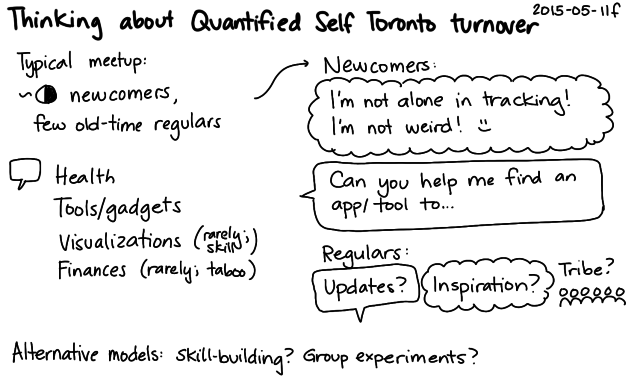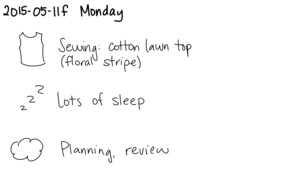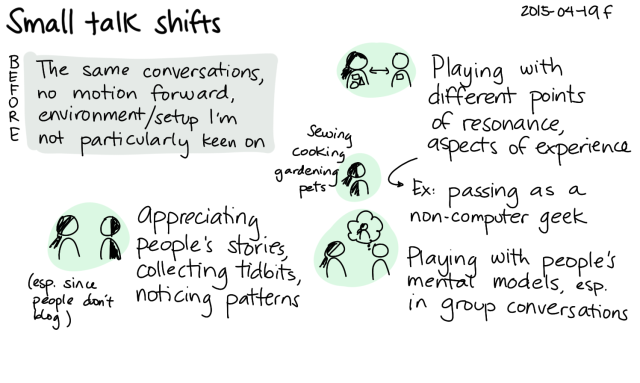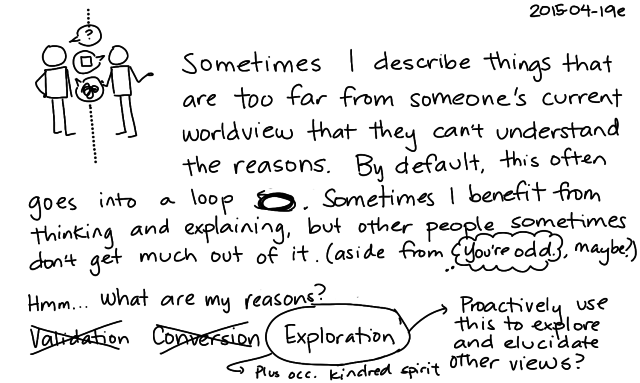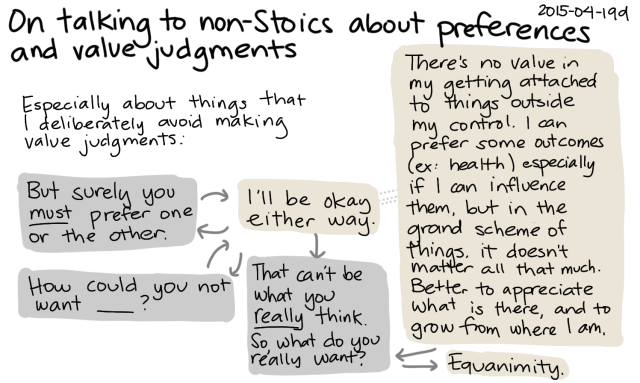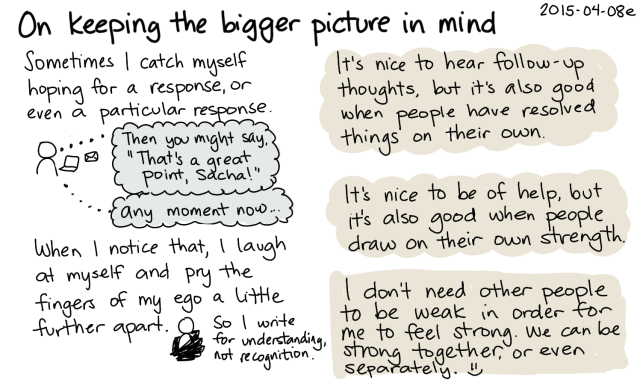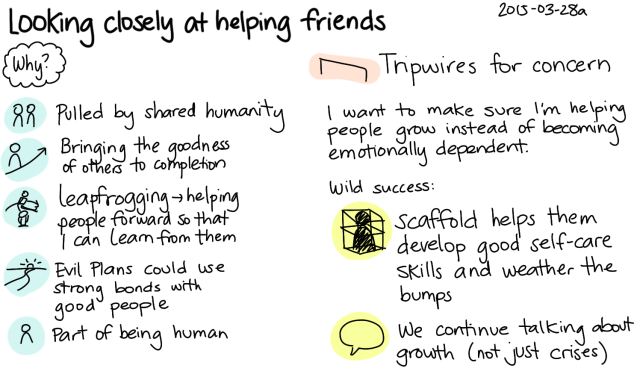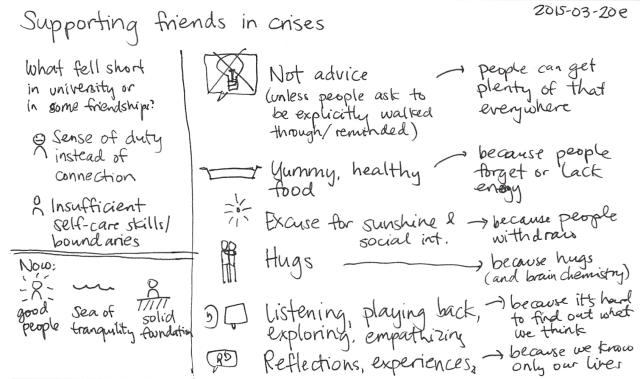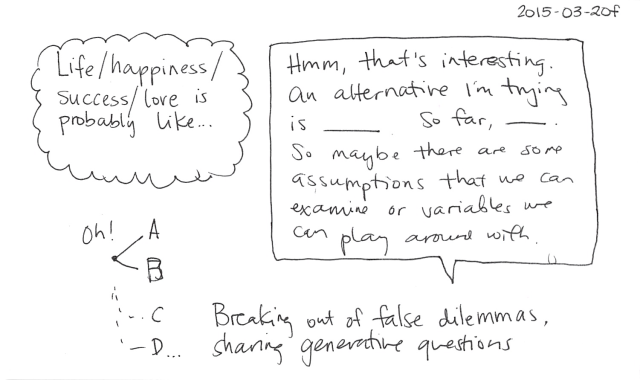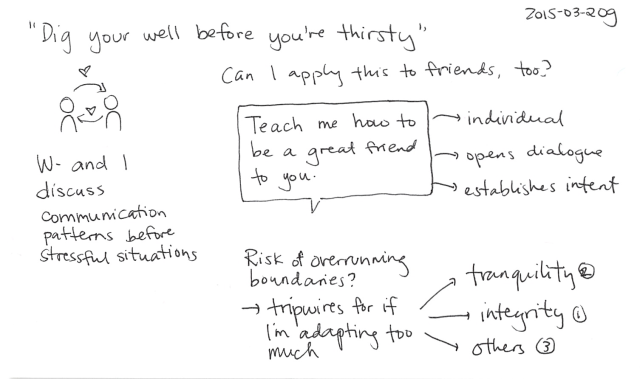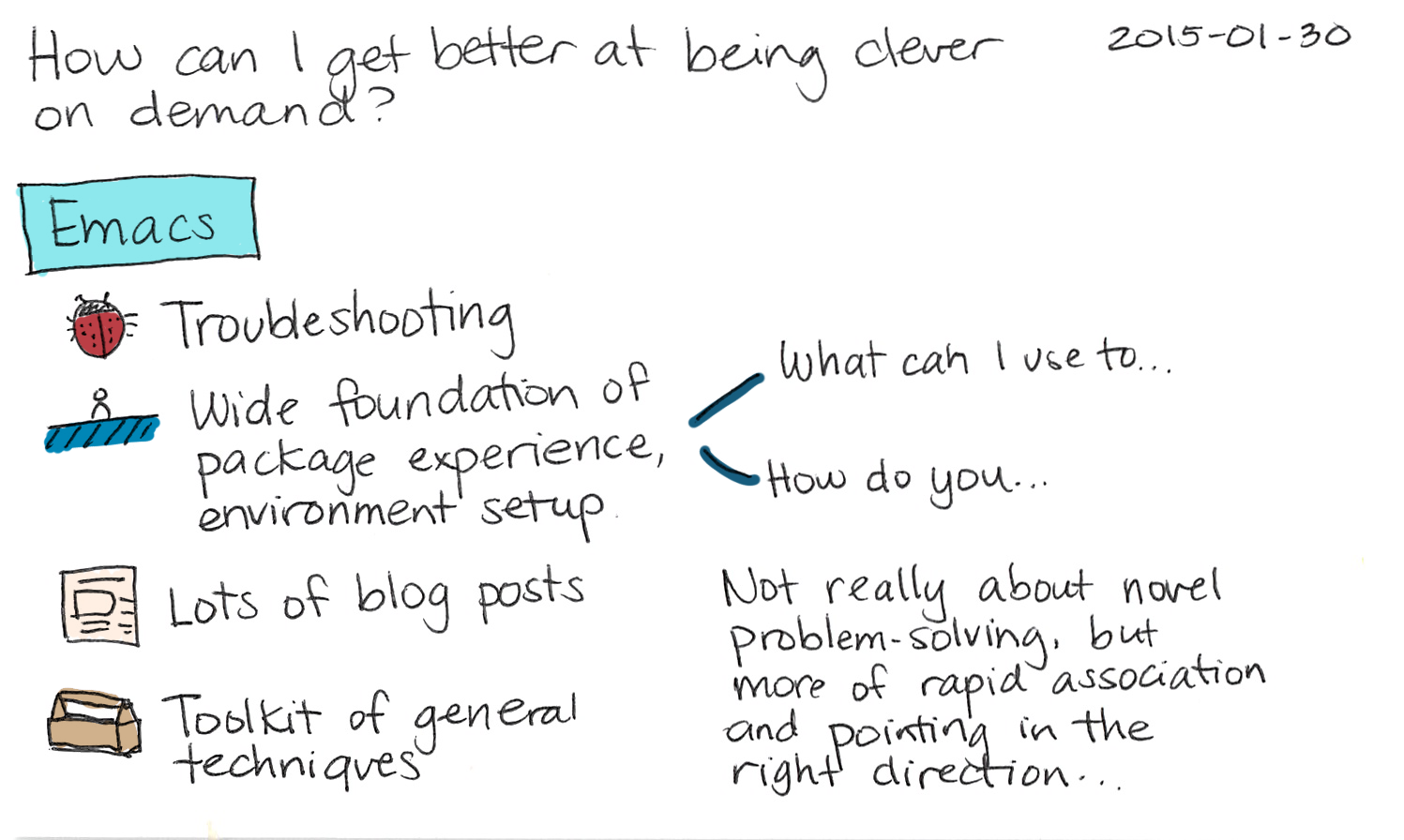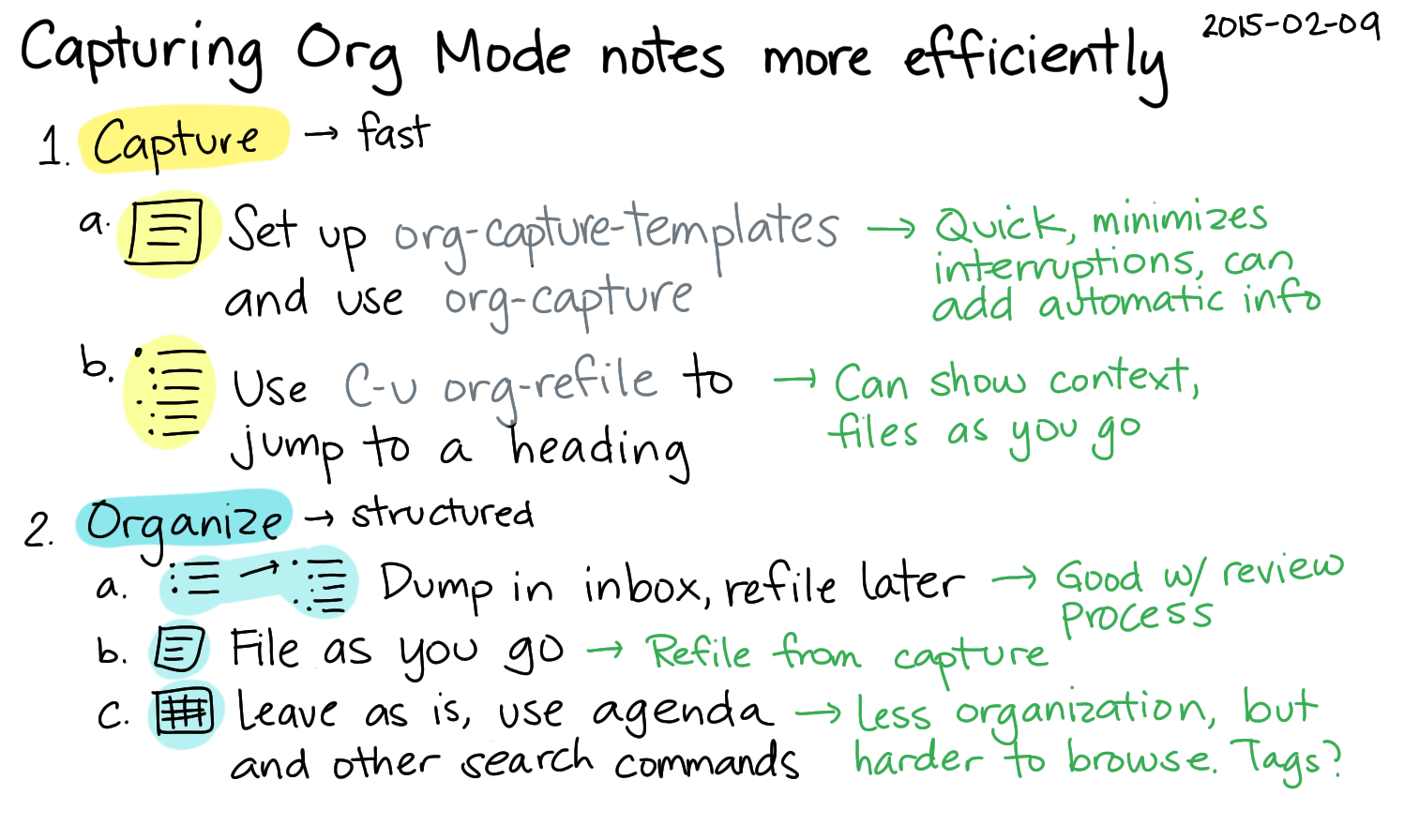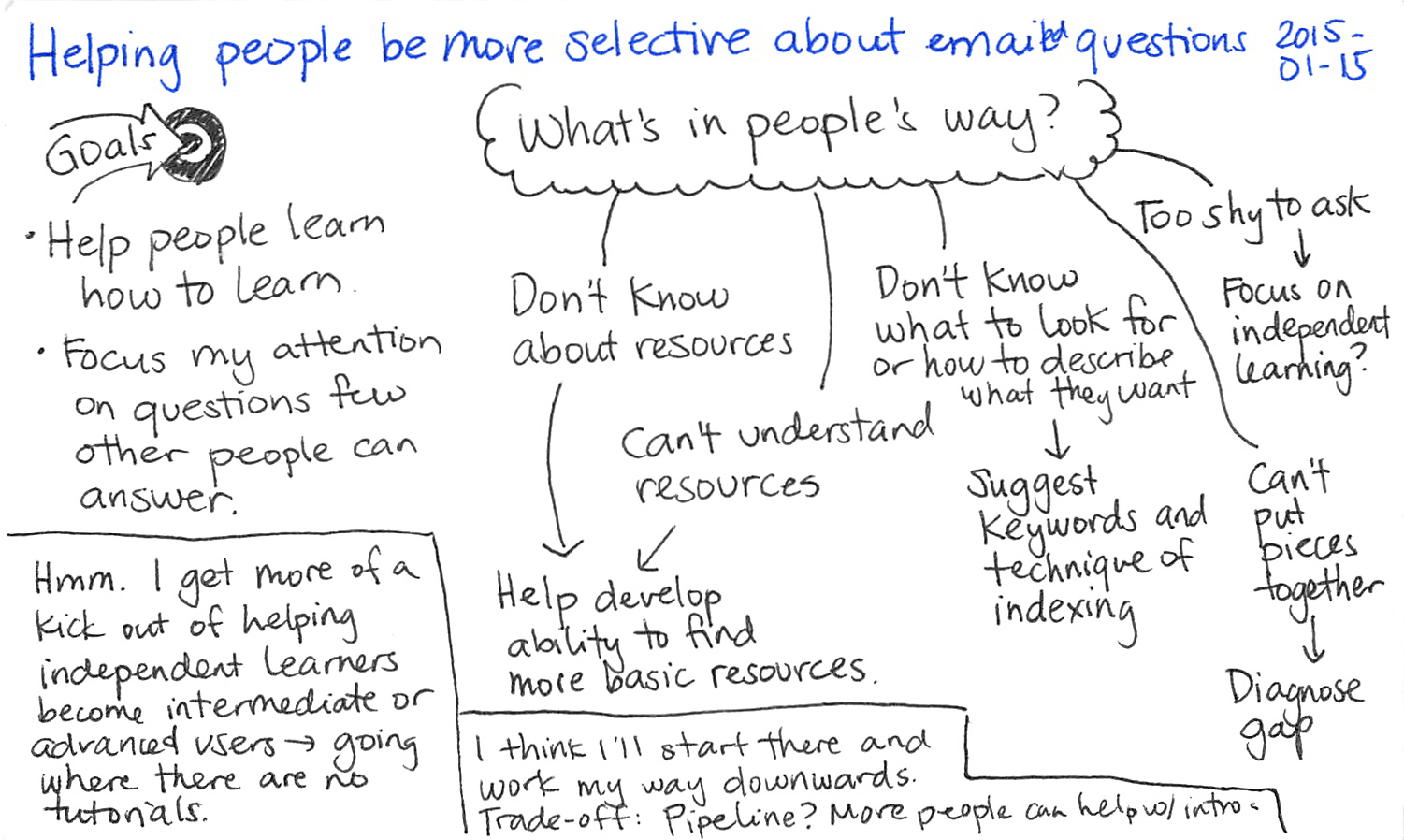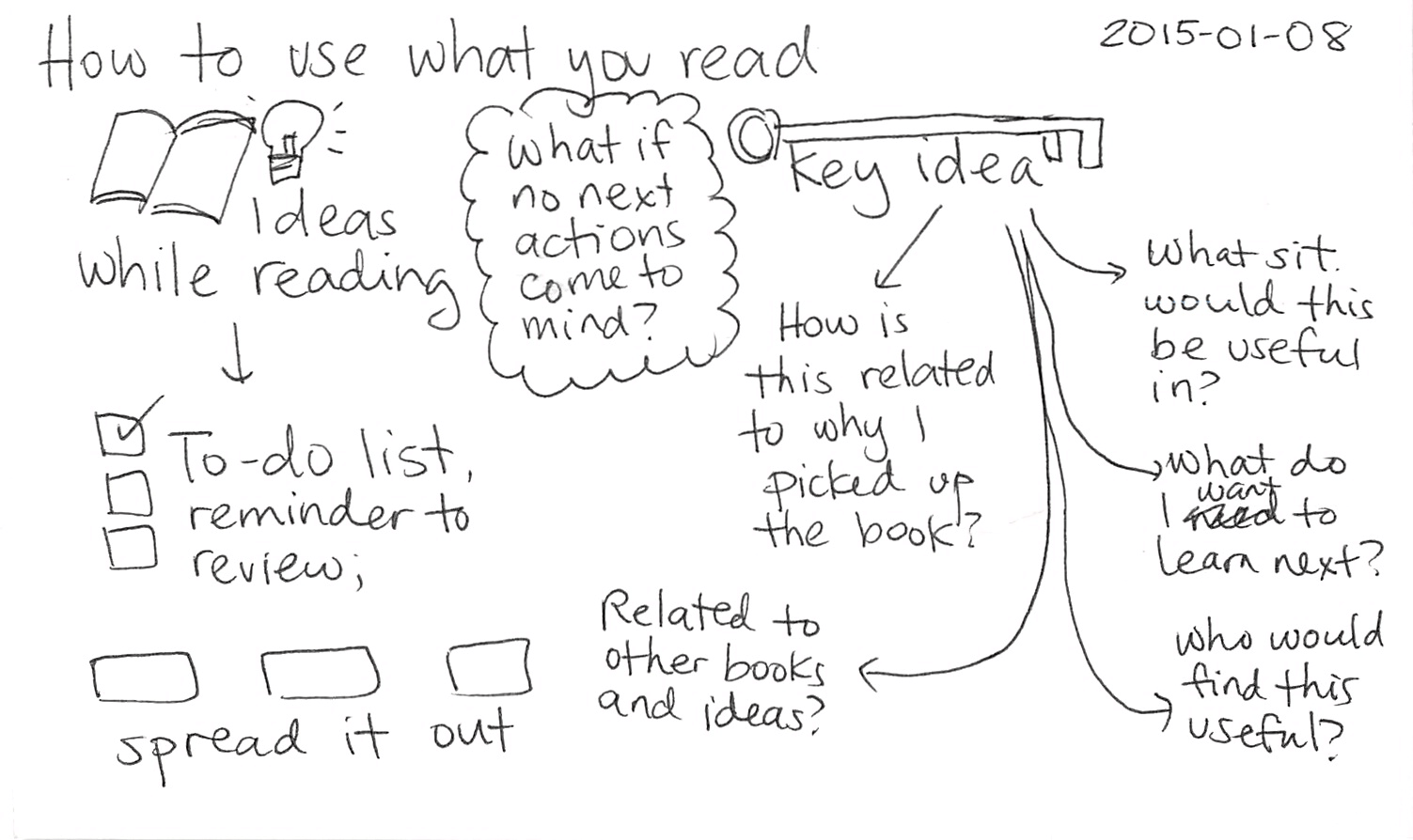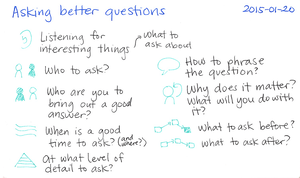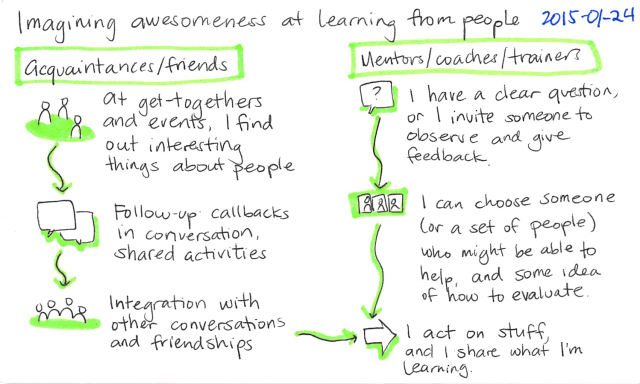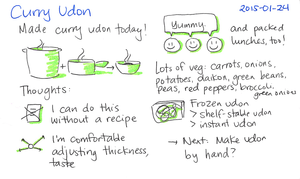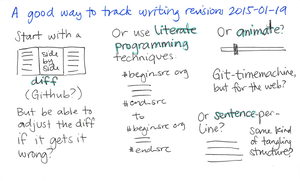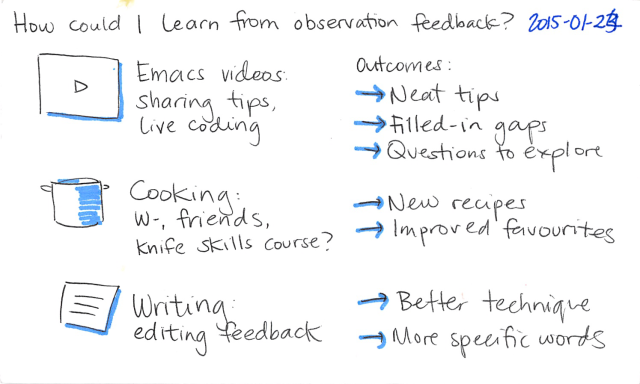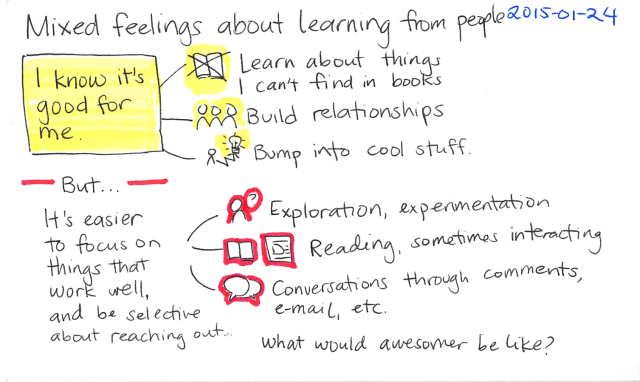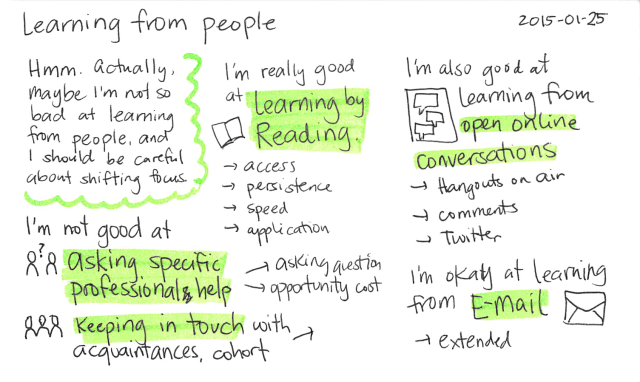What kind of tribe do I want to build around Quantified Self in Toronto?
Posted: - Modified: | connecting, quantifiedAttendance at the Quantified Self Toronto meetup has been low lately, and it's a good time to think about revitalizing or even redesigning the community.
The way it is now works okay for newcomers. I imagine the experience for newcomers is mostly like: Wow, I'm not alone! I'm not weird! There are other people who track stuff! (I know, I get that feeling each time I go too. =) ) If they work up the courage to share what they've been learning, they often pick up plenty of tips and ideas, and they can connect with other people tracking similar things.
From regulars, it's great to hear updates or find out about other things they're tracking.
The talks do tend to be a little repetitive. Often it's about people sharing data collected using apps or devices with predefined visualizations, and the occasional self-promotional bit. Sometimes we get new analyses or unconventional experiments, and those are the kinds of talks I enjoy the most.
The repetition is understandable – good, even. I think that's mostly because each person has to go through an individual journey. Even if two people present the same topic and have similar conclusions, it's good to recognize each of their experiences.
Still, it might be interesting to think about how we can increase the value for regulars and long-time trackers…
Mmm. If I could selfishly redesign this community to be even better-suited to my interests, what would it be like?
I go to Quantified Self Toronto meetups because I like the kind of people who use data to make better decisions about their lives. I particularly like it when someone's curious about something off the beaten track, whether they're collecting data on paper or they've built their own tools. Experimental manipulation is also interesting for me. I also like having the occasional nudge to design, conduct, and report on my little experiments. I've talked about a lot of odd things over the years (like cat litter box use, and more recently, sewing), and I like resonating with people in an unexpected way.
If I were to tilt Quantified Self Toronto to be something more personally useful for me, I might focus on:
- Getting more people to the point of being able to explore and analyze their own data instead of relying on apps
- Learning to notice when you're confused, and thinking of ways to explore that uncertainty
- Tracking on paper
- Analyzing with spreadsheets and graphs
- Connecting with other toolmakers so that we can bounce ideas around
- Developing my own skills in data collection, analysis, and visualization
- Android programming or scripting?
- Electronics?
- R?
- Trying out other people's experiments so that I can share my experiences and notes with them
- Researching unconventional experiments/measurements using QuantifiedSelf.com and similar blogs, and drawing inspiration from those
At the Quantified Self Conference I went to in 2012, I gravitated towards people who tracked their own questions or even built their own tools. I don't expect the majority of Quantified Self Toronto to be creatively technical, but it might be interesting to attract and retain a core of people like that. What would make 2-3 hours worth it for them, and what would make it more worthwhile for me? Alternatively, what are other ways I could build that kind of tribe? I think education, inspiration, and shared experiments might be interesting to play with. Hmm… The same combination could help encourage newcomers to develop along those lines, too. Might be worth looking into.

